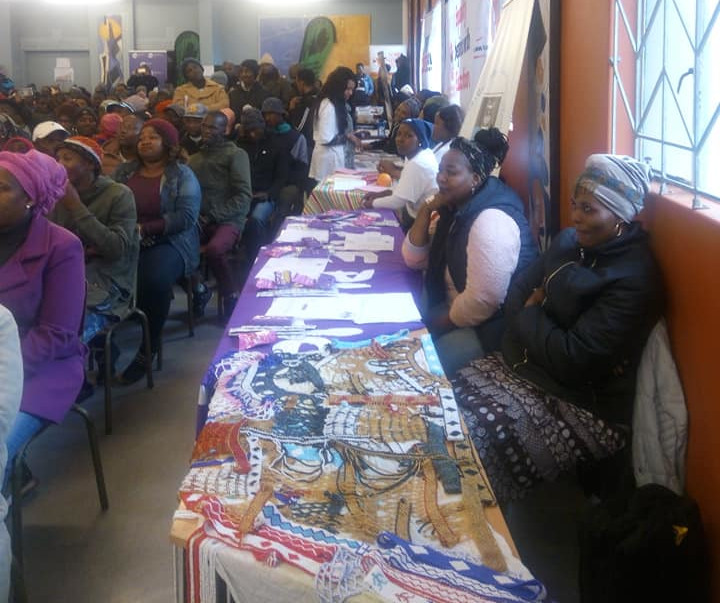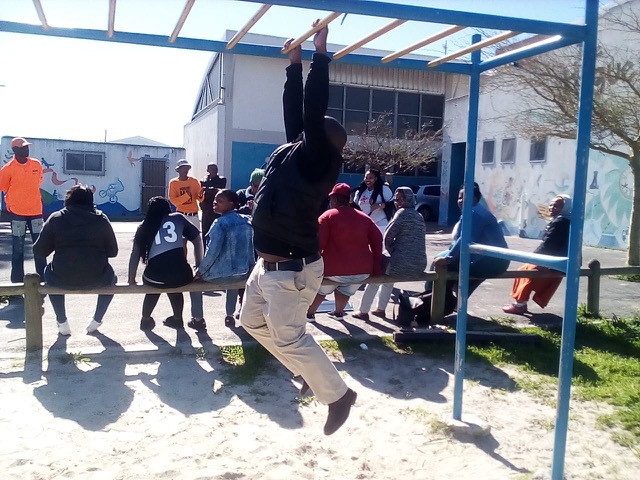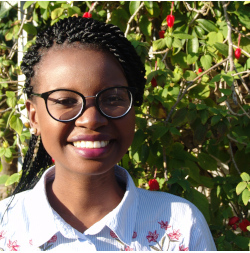The iALARM Project: Working to Raise the Alarm about HIV among Men and Boys

Nonzuzo Mbokazi (Research Administrator, UCT)
Editorial Note: In this piece, Research Administrator for the iALARM Project, Nonzuzo Mbokazi, shares reflections from the Gugulethu UCT Research Indaba and provides an overview of the strides made by iALARM to raise the Alarm about HIV/AIDS among men and boys.
Nelson Mandela once said, “Health cannot be a question of income; it is a fundamental human right”. On this year’s Mandela Day, 18 July 2019, iALARM, a research and community engagement project based at the UCT School of Public Health and Family Medicine’s Division of Social and Behavioural Sciences, invited members of NGOs, CBOs, local health facilities, and the Gugulethu community to participate in sharing the spirit of ubuntu (togetherness) at the Second Annual Gugulethu-DSBS, UCT Research Indaba.

iALARM stands for “Using Information to Align Services and Link and Retain Men in the HIV Cascade”. It is an ongoing effort in the Division to raise awareness around and conduct research to better understand the health needs of men and boys, with a focus on HIV. At the Indaba, we heard from Lesley Gittings on some of her PhD thesis findings, HIV-positive adolescent boys’ engagement with HIV treatment and care during and following ulwaluko (traditional initiation/circumcision) in the Eastern Cape Province of South Africa. She spoke about the ways that HIV-positive adolescent boys and young men (ages 13-22) take care of their health during and after ulwaluko in the Eastern Cape, and her presentation sparked a great discussion. A key lesson from this presentation according to participants at a meeting was that while mothers do not want to know the details of the initiation school, they definitely do want to be part of the process leading up to the boys going ‘to the mountain’ and when the boys come back. They said that education on how to support their children when they return is necessary. They wanted to be active in taking them to the clinic and providing them with the necessary attention in terms of their health. This is an example of how the Indaba facilitated fruitful discussion and imparted knowledge and elicited useful suggestions. It speaks to the impact of sharing knowledge and how research findings can be used to inform a larger dialogue in the health system about community needs.
Yandisa Sikweyiya, Associate Professor at the School of Public Health, University of Witswatersrand and Specialist Scientist at the SAMRC spoke about research to expand an existing HIV adjustment and coping intervention called Sondela and tailor it to better help men to link and be retained in care. This research is being done in collaboration with other researchers from the SAMRC and Brown University. Sondela [an isiXhosa verb meaning `come near'] seeks to increase psychological wellbeing and resilience; build gender equitable relationships; reduce HIV risk behaviour; increase health-seeking behaviour and build social support networks. The Sondela intervention was of much interest to community members at the Indaba. They were keen to learn more about it and wanted to find out how they could get more information on how it might be rolled out in Gugulethu.
Most of iALARM’s research focuses on men and HIV, but the Indaba also included presentations and discussions focused on broader health issues in the area. The Indaba tried to serve as a platform for the dissemination of health research and information to the wider community and health systems in and around Gugulethu.
Other topics covered at the Indaba included research focused on:
-
Male community activists in Gugulethu
-
New forms of fatherhood and fathering
-
The use of social media to manage romantic relationships
-
Experiences of HIV research study participants in Gugulethu
-
Current efforts in Southern and Eastern Africa to engage men in HIV services
-
Using information to strengthen relationships between communities and health systems
-
Pregnant women and medicine use in Gugulethu
A Partnership with a Range of Community Organisations

Sonke Gender Justice, a non-profit organisation working throughout Africa (with offices in Gugulethu) with women and men, girls and boys to resist patriarchy, advocate for gender justice and achieve gender transformation, is also a key partner with iALARM. Sonke appreciates the need to be active in engaging men in HIV services because men and boys are underrepresented in HIV services while being overrepresented amongst AIDS deaths and a key part of the cycle of new HIV infections, a cycle which needs to urgently be broken. To do this, Sonke works closely with iALARM to emphasize the focus on men and the necessity of men’s participation in HIV response efforts.
The Department of Health is also a stakeholder in the iALARM project. Mr. Msokoli Qotole, Deputy Director in the Directorate of Social Mobilisation: HIV/AIDS, STI & TB in the Western Cape, Department of Health, was a speaker at the Indaba, and he commented on how health systems acknowledge the need to render health services using different strategies for different populations. This means we need to think about how to better engage men in health programmes and ensure that they are comfortable to make use of these services.
Part of a Broader Strategy to Engage Men in HIV and Health Services
The Research Indaba is one of the strategies used by iALARM to bring together people from inside and outside the health system, to provide a platform to share new ideas, build relationships and work towards better health for all. Other strategies we are using include the Linkage and Retention Task Team meetings, held six times a year, Task Team (TT) meetings are a space that brings together health systems, government and community actors together to engage and problem solve shared challenges. The TT meetings are designed to share different types of health information among a diverse group of health stakeholders to promote collaboration within the health system. The Networking Meeting, held once a year, is a strategy iALARM uses to bring together local organisations to consider collaborations, engage with each other, build relationships, and share their work and relevant information.
iALARM activities are enabled by a grant received from the National Institute of Mental Health (in the US) as well as support from the South African National Research Foundation.
More information on iALARM is available online.
For further information please contact Associate Professor Christopher J Colvin, Myrna van Pinxteren or Nonzuzo Mbokazi.
Author Biography
